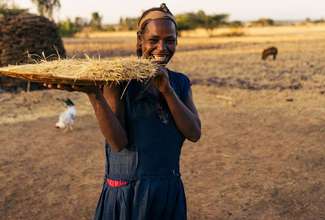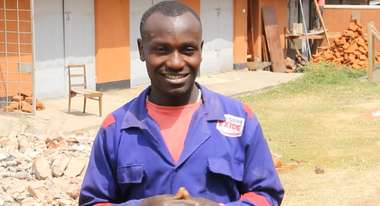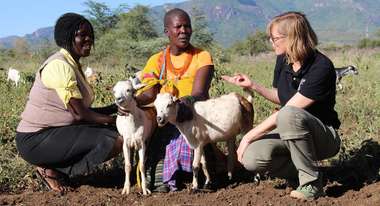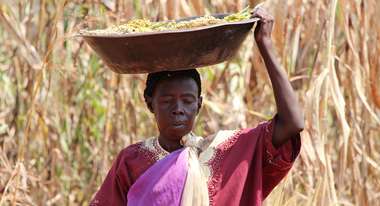"I often thought about the war – now I dream of a better future"
Many people from South Sudan have fled to Uganda to escape the civil war. Training programs are now creating opportunities and community in the Bidi Bidi refugee camp.
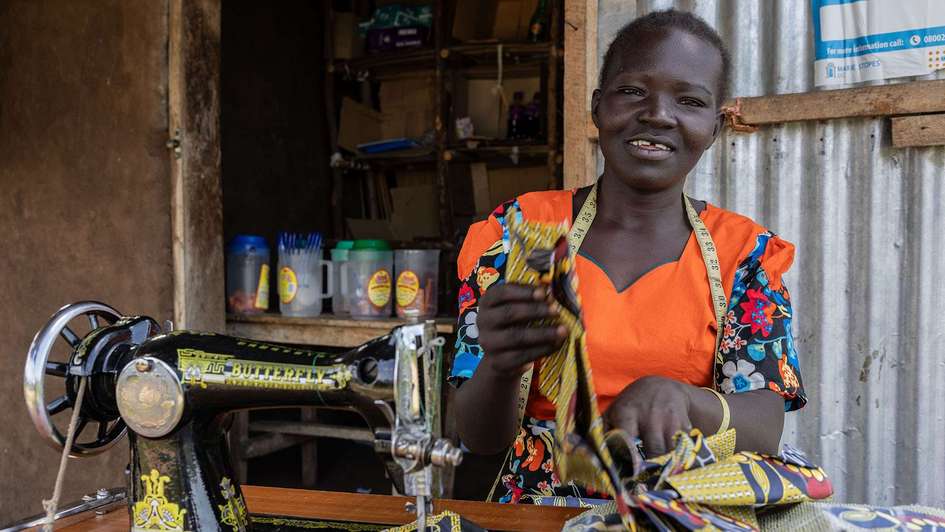
In Uganda's Bidi Bidi refugee settlement, people are queuing up to see Betty Gire. The 29-year-old is the only seamstress in the area, and the crowds are huge.
Betty is wearing one of her colorful tailored dresses, which has earned the praises of the villagers. Her pride in her work is evident as she sits behind her sewing machine with a smile. Several customers are waiting next to her, hoping Betty will have time for them.
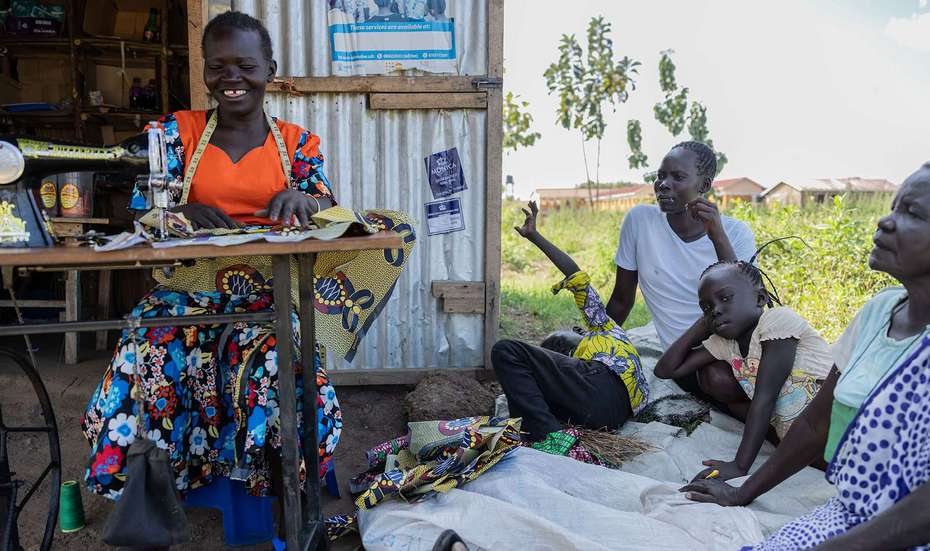
"I love my job," says Betty. " But I actually dream of much more: I want to expand my business, continue my training, and then offer my children the best education. I want them to become doctors and pilots." She laughs, but then she gets serious again. "Since my training, I have found so much joy and perspective. I'm grateful for that, but I also carry the memories of more difficult times with me."
Fleeing South Sudan
Betty is originally from South Sudan. The East African country only gained independence in 2011, but since 2016, civil war has been raging there. More than 2.3 million people have fled; half of these refugees, including Betty, live in neighboring Uganda.
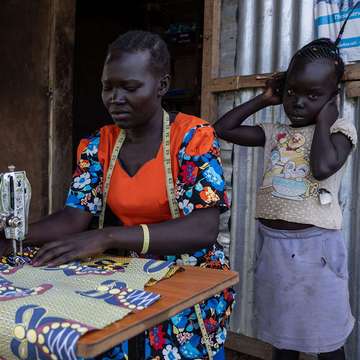
"The rebels attacked our village," recalls Betty, who had a baby and two girls of nursery school age at the time. "People were shot dead everywhere, and houses were robbed and burned down. Women were raped and many families died while trying to flee, especially children. They had no water and no food and were exhausted. I saw all this; these images still haunt me to this day. I was so afraid for our survival."
After several days fleeing on foot, Betty made it to Uganda, leaving her husband behind. "He didn't want to come with us; he didn't want to look after his family," Betty says quietly. She doesn't go into any more detail. Since then, she has raised her children alone. Betty's parents also live in Bibi Bidi, so the young mother and businesswoman has some support.
Almost 200,000 refugees now live in Bidi Bidi. Betty has built a small mud house here, but since she completed her vocational training last year, she hopes to build a larger house soon. She has at least six customers a day, each item of clothing taking her around one to two hours.
Training at the Welthungerhilfe training center
The young seamstress has completed her training at the Welthungerhilfe (WHH) training center. Refugees and people from Uganda are taught together there. "Students here can learn trades such as carpentry or tailoring," explains Sam Isaac, head of the center. "The training lasts six months and is followed directly by an internship," he adds.
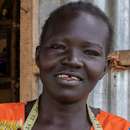
I have so many plans and at the moment it seems that they are achievable as long as I work hard for them.
Betty Gire fled from South Sudan and has built a new life for herself in Uganda.The apprenticeship to become a tailor was advertised in Bidi Bidi last year and Betty was one of the first applicants, she says. During her apprenticeship, Betty's family looked after the children. Now, they usually play outside their mother's tailoring store after school.
Betty says she has always had motivation and energy, but the apprenticeship has given her even more drive. Other students also feel the same way.
A place for community
Leticia Faith, 19, is one of them. She is a student at WHH's training center, and like Betty, she is learning tailoring. "Even as a child, I always wanted to be a tailor. Now it's not just a dream," she says as she sits in front of her sewing machine in the classroom.
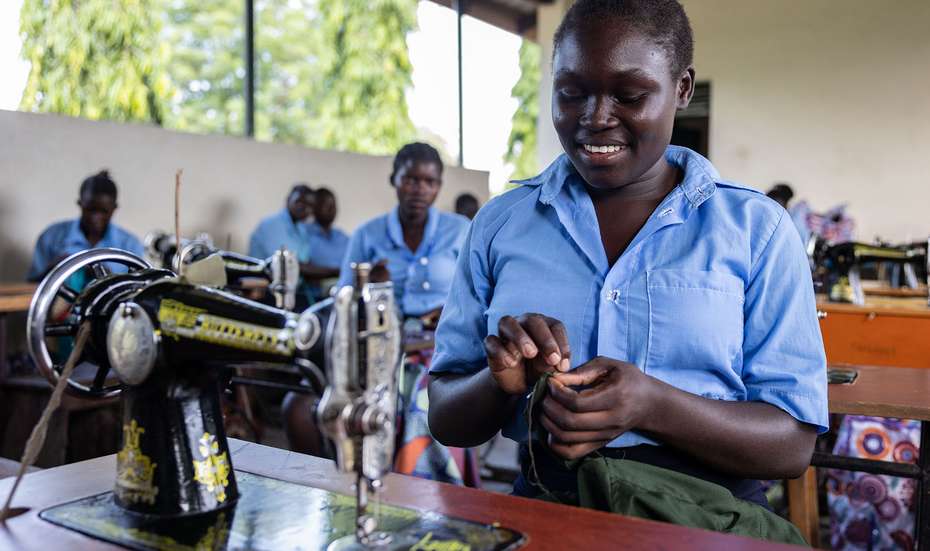
Leticia is from Uganda. Before her training, she didn't personally know anyone from South Sudan. "It was a bit difficult at first because we speak different languages," she admits. "In the meantime, we have become friends and even learned each other's languages. I have so many new people in my life now."
Following her training, Leticia would like to open her own business. She used to spend most of her time at home and didn't even finish school at first.
"Every semester, 70 percent of our trainees are refugees, mostly from South Sudan and the Congo. The other 30 percent are from Uganda," explains manager Sam Isaac. "Integration is one of the most important aspects here. We fight discrimination here, we teach tolerance and acceptance for everyone."
Like Leticia, Betty also appreciates working together: The other trainees were warm and open.
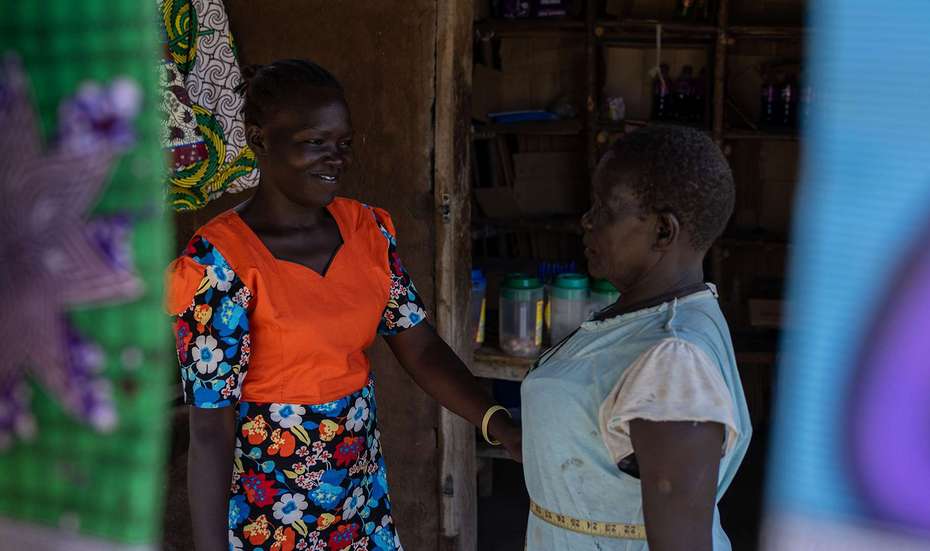
A new perspective
Alongside her family and work, Betty often thinks about the next few years and the hope of one day returning to her beloved homeland. "Before the training, I often thought about the war at home, my husband and the difficulties here. Now I dream of a better future."





